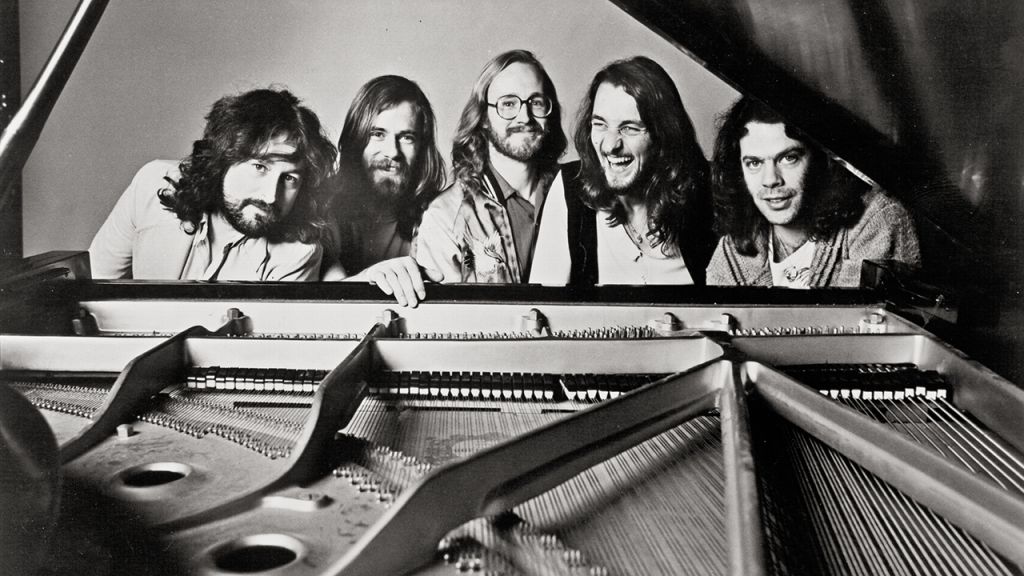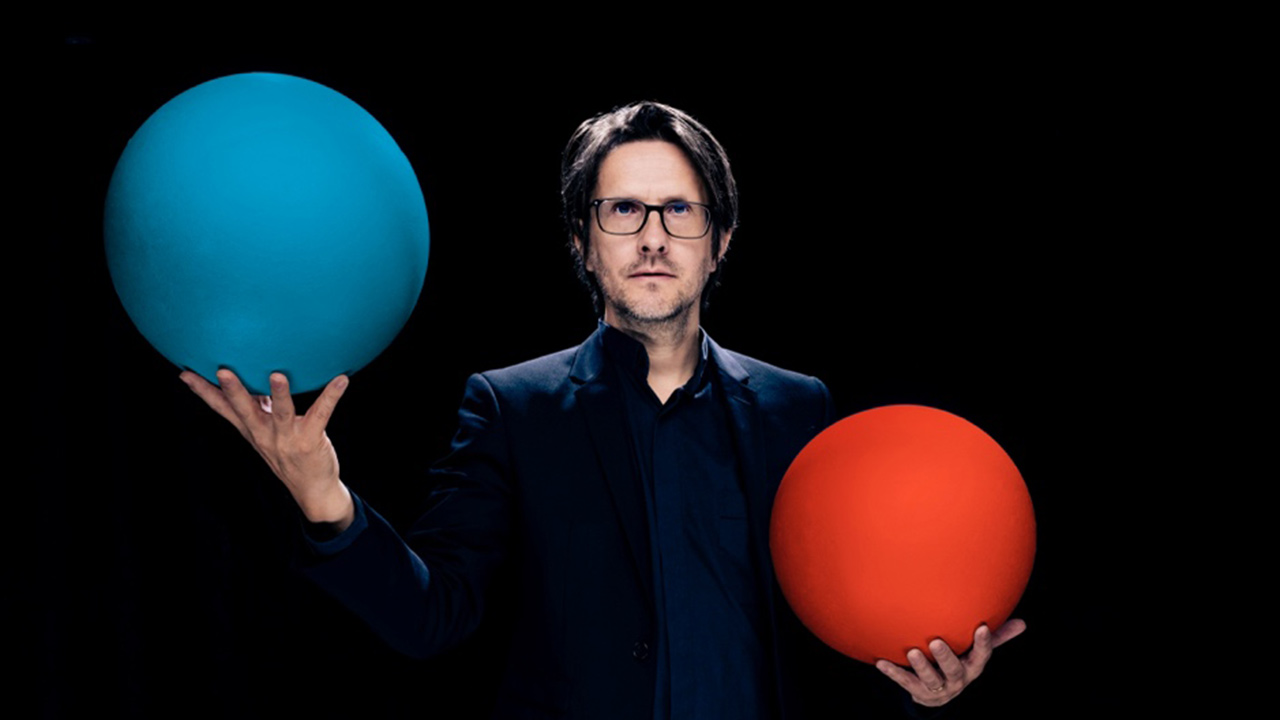Supertramp interview: Are Rick and Roger ever going to reunite?
Supertramp saxophonist John Helliwell on reunion possibilities, surviving punk, the Paris live album and more

Select the newsletters you’d like to receive. Then, add your email to sign up.
You are now subscribed
Your newsletter sign-up was successful
Want to add more newsletters?

Every Friday
Louder
Louder’s weekly newsletter is jam-packed with the team’s personal highlights from the last seven days, including features, breaking news, reviews and tons of juicy exclusives from the world of alternative music.

Every Friday
Classic Rock
The Classic Rock newsletter is an essential read for the discerning rock fan. Every week we bring you the news, reviews and the very best features and interviews from our extensive archive. Written by rock fans for rock fans.

Every Friday
Metal Hammer
For the last four decades Metal Hammer has been the world’s greatest metal magazine. Created by metalheads for metalheads, ‘Hammer takes you behind the scenes, closer to the action, and nearer to the bands that you love the most.

Every Friday
Prog
The Prog newsletter brings you the very best of Prog Magazine and our website, every Friday. We'll deliver you the very latest news from the Prog universe, informative features and archive material from Prog’s impressive vault.
The last time Prog saw John Anthony Helliwell, back in 2010, he was on stage at the O2 Arena, leading the current version of Supertramp through a show packed full of the group’s many, many hits.
Today we’re having breakfast. Not in America, but at least in an American diner (located, however, in London’s Covent Garden), while being treated to crystal
clear HD renditions of a selection of material from Supertramp’s long-awaited Live In Paris ’79 – a belated film companion to the band’s 1980 live album.
“Where you there?” he asks of the O2 gig. “I think it makes for an interesting comparison – to see us play live now, twice as old, and then see something like this. I think it compares very well.”
So too does the jacket Helliwell’s proudly displaying. It’s the very same one he’s wearing in the film, 30-odd years before. We may be three decades-plus down the line, but the trim saxophonist has worn the years very well. As indeed have the celebrated songs we’re hearing and Helliwell’s own still-amusing song introductions – “Being in Paris always makes me feel very logical” – and pun-laden lead intro Breakast In America itself.
What’s it like for you to find yourself watching the you from 1979?
“It brings back happy memories. There was a good power there between the five of us in the group at that time. We really seemed to gel well, and I think this film shows it.”
Then – as now, it seems – you were very much the MC or showman of the band, holding everything together and playing up to the audience.
“Well, it is a role that was handed to me, simply because the others didn’t want to do it [laughs]. When we did our first major tour with Crime Of The Century, back in 1974, we thought that the music was very serious. What we used to do back then was open with what was side one of Crime…, do some other numbers, and then end with the second side of Crime…. We felt we should talk to the audience, but no one else wanted to do it, so it fell to me. Slight comic relief maybe, not too serious, and we just carried on like that.”
The Paris show captured in the film was on the back of the enormous success of Breakfast In America, when the band were arguably at their commercial peak. What do you remember about that time?
“Breakfast In America had just come out, and was an enormous success. That was a really long tour as well. We started in March and actually finished about four gigs after Paris in December.”
Sign up below to get the latest from Prog, plus exclusive special offers, direct to your inbox!
Was it strange to find yourselves in the position you were in at the time, playing the biggest shows of your career and yet, with the advent of punk, effectively being written off as ‘past it’ – despite only being in your 30s?
“Well, here in the UK we were, but not anywhere else. You’ve just got to accept it. In general, the British music press were very supportive when we were in the ascendancy, from 1974 onwards. But when we moved to California, it changed. Maybe they never forgave us for moving to the States. And then our popularity increased, and maybe it’s the old thing of knocking them off their perch. Now we find it difficult to play in the States, but in Europe we’re still really big. We’ve had a smaller, loyal following here in the UK, and we still play here.”
The 2010 O2 show was impressively packed.
“Yes, but it was the only UK show we played. I don’t know why, I’m just the saxophone player, I’m not privy to the management decisions, etc… But that was quite heartening, that crowd. Although we do know we’re not right up there any more.”
I suppose it goes with the territory though – the longer a career goes on, the work rate slows down a bit, and touring becomes more laborious…
"I actually have to say that I really enjoy touring. But as I said, it’s up to Rick [Davies] when we tour, because he’s in charge. Back in the 70s it was a nice democratic organisation. But it’s not any more. It’s an oligarchy [laughs].”
What was life like on the road back then?
“We semi-shunned publicity. We didn’t blow into town in limousines and things. There’d be occasions when we’d fly in to town, and we’d place the road crew in the limos and we’d go in hire cars. At other times after soundcheck, we could wander out into the crowd and they wouldn’t know who we were, especially in North America. That was nice really, because we were in it for the music, not the personalities.”
What exactly is the state of play with Supertramp now?
“It’s Rick’s band, because he owns the name and he’s the one writer left since Roger departed. We still make albums, although they’re not as popular as Breakfast In America – but they do okay, and we’re pleased with what we’ve done. And we still sound good on stage. So we work when Rick wants to. We might be doing some gigs in 2013, and of course Europe is our biggest place to play.”
The one question we’d get lynched by ’Tramp fans if we didn’t ask, although I’m sure you’ve heard it too many times: any chance of a reunion with Roger?
“That question keeps rearing its head. Rick and Roger met up and tried to get something together, prior to us touring in 2010. But negotiations failed, so Roger wasn’t around on that. My opinion on it all is: it’s possible, but doubtful, that they would get together on a tour like that. But it would be nice to have a reunion of just the five of us; that would be very nice. I’m up for it. All the time, I’ve been up for it. But it’s not just them, it’s managements and other things as well.”
This feature originally appeared in Prog 31.
Writer and broadcaster Jerry Ewing is the Editor of Prog Magazine which he founded for Future Publishing in 2009. He grew up in Sydney and began his writing career in London for Metal Forces magazine in 1989. He has since written for Metal Hammer, Maxim, Vox, Stuff and Bizarre magazines, among others. He created and edited Classic Rock Magazine for Dennis Publishing in 1998 and is the author of a variety of books on both music and sport, including Wonderous Stories; A Journey Through The Landscape Of Progressive Rock.

